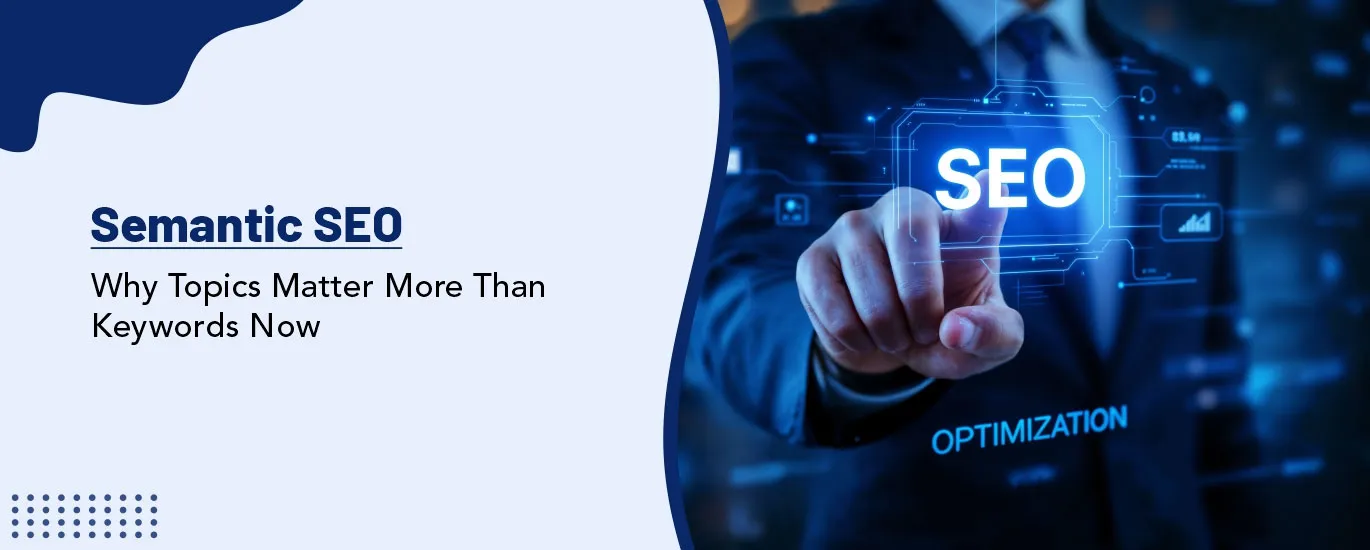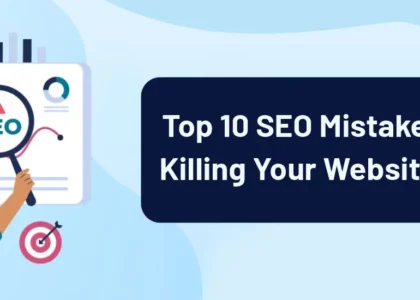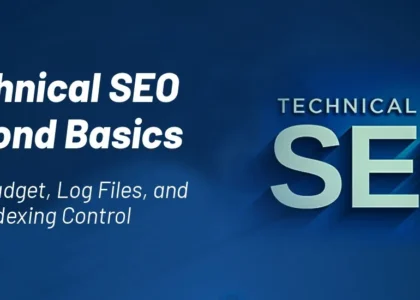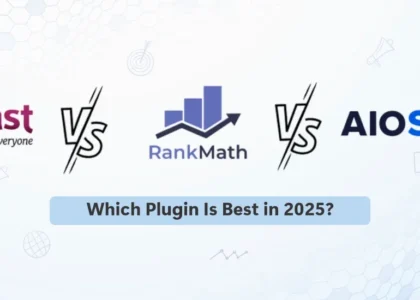Introduction: Why This Topic Matters in 2025
If you’re still building your SEO strategy around a list of keywords, you’re already falling behind. Search engines have changed dramatically over the last few years. Google no longer rewards pages that simply repeat a keyword multiple times. Instead, it now prioritizes context, relevance, and intent. This shift is driven by semantic SEO—a smarter, more human-like approach to search optimization.
In 2025, businesses that focus on topic-based SEO will dominate rankings because they provide deeper, more meaningful content that truly answers user questions. Let’s break down what semantic SEO is, why topics matter more than keywords, and how you can implement it to future-proof your website.
What is Semantic SEO?
Semantic SEO is the practice of optimizing your website so search engines understand the true meaning behind your content—not just the words on the page.
Instead of matching exact keywords, Google now looks at relationships between words, topics, and user intent. For example:
- Old SEO: To rank for “best running shoes,” you’d repeat the keyword several times.
- Semantic SEO: You’d create a guide covering different shoe types, cushioning technologies, performance reviews, and buying tips—all linked to the broader topic of running shoes.
By doing this, your content becomes more comprehensive and matches what users actually want to know.
Keyword-Based SEO vs. Topic-Based SEO
Keyword-Based SEO (The Old Way)
- Focused on individual keywords.
- Heavy keyword stuffing and exact match targeting.
- Often produced shallow, fragmented content.
- Could trick search engines, but not users.
Topic-Based SEO (The Modern Way)
- Focuses on broader themes and clusters.
- Uses related concepts, synonyms, and natural language.
- Creates pillar pages supported by subtopics for depth.
- Prioritizes answering user intent and context.
In simple words: keywords tell Google what you wrote about, topics tell Google why your content matters.
Why Topics Matter More Than Keywords Today
Google’s algorithms—especially with updates like BERT, MUM, and Search Generative Experience (SGE)—can now interpret search queries more like humans.
Here’s why topics matter more:
- Searches are conversational. People use natural language, like “What’s the best running shoe for flat feet in 2025?” A keyword-only approach can’t keep up.
- One query, many variations. By focusing on topics, your page ranks for multiple related searches (e.g., “flat-foot running shoes,” “supportive shoes for runners”).
- User intent is key. Google rewards content that answers the “why” and “how,” not just the “what.”
- E-E-A-T signals. Covering topics in depth builds Expertise, Experience, Authoritativeness, and Trustworthiness.
In 2025, success in SEO is no longer about chasing exact keywords but about being recognized as an authority on topics.
How Semantic Search Optimization Works (With Examples)
Semantic search optimization is all about context and connections.
Example 1: Fitness Blog
- Keyword approach: Write one post titled “Best Protein Powders.”
- Topic approach: Create a hub page on “Protein for Fitness” with related posts on “Plant-based Protein,” “Whey vs. Casein,” “Protein Timing for Muscle Growth.”
This cluster signals to Google that your site is a topic authority on protein.
Example 2: Local Business (Restaurant in Delhi)
- Keyword approach: “Best Italian Restaurant in Delhi.”
- Topic approach: Cover topics like “Authentic Italian Dishes Explained,” “History of Pasta in Italy and India,” “Wine Pairings with Italian Cuisine,” plus a location page optimized for Delhi.
Google sees your restaurant not only as a place but as an authority on Italian dining in Delhi.
Benefits of Semantic SEO for Businesses
- Higher Rankings Across Multiple Queries
Instead of ranking for one keyword, your content ranks for dozens of long-tail and related terms. - Better User Experience
Users stay longer when they find detailed, relevant answers. This reduces bounce rate and improves engagement. - Authority and Trust
Covering topics deeply positions your brand as an expert in your niche. - Future-Proof SEO
As AI-driven search grows, semantic SEO ensures your content is adaptable.
Many businesses struggle to implement semantic SEO because it requires deep research, structured content, and advanced strategy. That’s where experts like Arrowpace come in. As a trusted SEO partner, Arrowpace helps businesses move beyond outdated keyword tactics and build topic-based SEO strategies that drive both traffic and conversions.
Practical Tips to Implement Semantic SEO in 2025
- Build Topic Clusters
- Create one pillar page for a broad topic.
- Add supporting blog posts covering subtopics.
- Interlink them for context.
- Create one pillar page for a broad topic.
- Optimize for User Intent
- Ask: Is the query informational, navigational, or transactional?
- Tailor your content to match the intent, not just the keyword.
- Ask: Is the query informational, navigational, or transactional?
- Use Structured Data (Schema Markup)
- Help search engines understand your content better.
- Boost chances of rich snippets in results.
- Help search engines understand your content better.
- Leverage AI Tools for Content Gaps
- Tools like Google’s SGE insights, Surfer SEO, or Clearscope can help identify missing subtopics.
- Tools like Google’s SGE insights, Surfer SEO, or Clearscope can help identify missing subtopics.
- Focus on Synonyms & Natural Language
- Don’t just repeat “SEO services.” Use phrases like “search engine optimization,” “organic growth,” and “online visibility.”
- Don’t just repeat “SEO services.” Use phrases like “search engine optimization,” “organic growth,” and “online visibility.”
- Refresh Content Regularly
- Update older posts with the latest data, AI trends, and user queries.
Conclusion: The Future Belongs to Semantic SEO
The days of stuffing keywords into blog posts are gone. In 2025, semantic SEO and topic-based strategies are the keys to ranking, visibility, and trust. Search engines now reward businesses that provide comprehensive, context-rich content designed to help real people—not just algorithms.
If you want to stay ahead, start building topic clusters, optimize for user intent, and embrace semantic search optimization.
And if you’re unsure where to start, Arrowpace can help. With proven expertise in SEO services in Delhi, Arrowpace helps businesses turn high traffic into real leads by implementing smart, future-ready semantic SEO strategies.
The bottom line: Topics matter more than keywords now. Adopt semantic SEO today, and you’ll not only survive but thrive in the AI-driven search era.





